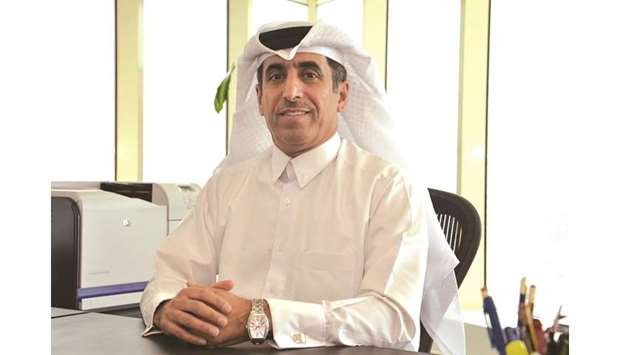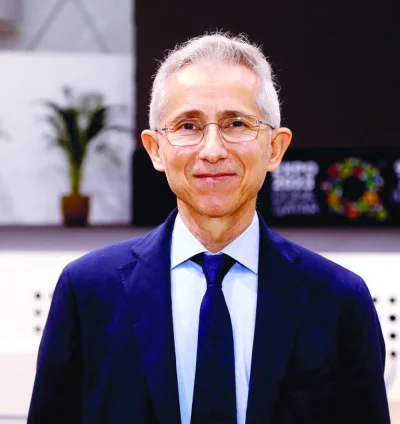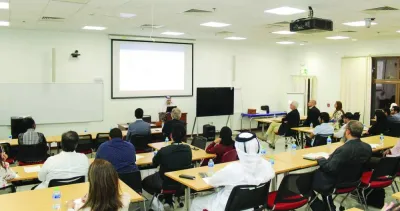In an exclusive interview with the Qatar News Agency (QNA), Dr al-Nuaimi said that the conference that will be held in March under the theme: ‘Religions and Hate Speech Scriptures and Practice’, will host more than 500 participants from outside Qatar, representing more than 200 institutions, universities, religious, intellectual and academic centre, from about 75 countries around the world, in addition to participants and attendees from within the country.
The conference aims to address the issue of hate speech, its dimensions and the religions’ attitudes towards it, with the participation of religious scholars, former officials, academics, heads of institutions, university professors, university students, charitable institutions and civil society organisations, as well as representatives of the United Nations and countries affected by Hate speech around the world, Chairman DICID said.
Dr al-Nuaimi pointed out that the two conferences will focus on commonalities among the divine religions, to find a basis for mutual coexistence in the interest of humanity in general, away from debating religious thoughts.
“Respecting people of other religions requires us to invite them to the dialogue, the results of which will positively reflect on the reality of Muslims outside Islamic countries, lead to a retreat of hatred against Islam and Muslims, and provide more sympathy for the Ummah’s issues in non-Muslim countries. These are goals we seek to achieve,” he added.
He stated that DICID has become a source of pride for every Qatari and all Arabs, noting that raising this type of issue for dialogue with other religions’ followers “reflects what we have achieved in thought and civilisation philosophy.”
He also praised both the initiatives of Qatar in the field of interfaith dialogue, and Qatar’s positive role pertaining to dialogue between civilisations and cultures, which made it one of the world’s most influential countries on such issues, adding that Qatar, thanks to its wise leadership, has pioneered in all of these important issues, and it is a country that always searches for peace and harmony.
He said that the continuation of this conference in Qatar enriching its pioneering role in this field, especially as it is a multicultural country with many nationalities living on its soil, has made Doha Conference on Interfaith Dialogue another great addition to these human dimensions.
Dr al-Nuaimi noted that three main axes will be discussed at the conference. The first deals with hate speech in terms of causes, motives, and risks, extremist religious discourse, its role in the spread of hate speech, the concept of hate speech, misunderstanding of religion, the promotion of hate speech, the extremist discourse of some scholars and political leaders, and its impact on achieving world peace.
He pointed out that the second axis titled “Hate Speech... Types and Forms” will focus on the danger of spreading images of hate speech and incitement to violence and terrorism, the political use of hate speech, the implications of its spread and its impact on peaceful coexistence. It will also address the practices of increasing racism due to hate speeches against refugees and religious minorities, and discrimination against women.
The third axis of the conference comes under the title “The Desired Role of Confronting Hate Speech”, which discusses the role of religious and media leaders and institutions in combating hate speech. It will address the responsibility of religious scholars and the role of worship in raising awareness of the need to respect religions and the influence of the media in reducing it and respecting cultural and religious diversity.
He said that within the third axis the participants will discuss the topic of international laws and agreements in the criminalisation of hate speech, where the limits of the application of freedom of expression and the areas of its protection in international humanitarian law will be clarified. The role of educational institutions in addressing hate speech, discussing the importance of preparing younger generations to deal with hate speech, confronting hate speech through culture and the arts, the need to respect diversity, accept pluralism and human understanding of others will also be discussed.
In response to a question about the ways of transferring fruitful dialogue from religious scholars and thinkers to the common people, Dr al-Nuaimi said that although the conference is concerned with leaders and thinkers, its fruits already have moved from the summit to the base, and are embodied in activities, research, conferences, etc.
The conference also witnesses the wide participation of students from universities and colleges with jurisdiction in the country, inviting university students to participate in such important conferences.
He emphasised that among the objectives of the conference is to convey to the speaker the point of view of the Qatari and Muslim citizens towards clearly raised issues by showing a Qatari-Islamic vision without any compromise of principles or loyalty at the expense of religion. In addition, the discussion of the principles of Islam and its call for tolerance, love, and coexistence, rejecting hatred and aggression against non-aggressors.
He explained that the world today is threatened by two main dangers, the first: terrorism, which everyone has agreed to fight and confront, and the second: the escalation of hate speech in all its forms, as well as its exclusionary and racist forms that classify people according to their religion, gender or skin colour.
Speaking to QNA, Dr al-Nuaimi touched on the commonalities between the divine religions, stressing that all religious texts within the divine books call for fighting hatred and the spread of love and tolerance. However, he said that he saw that practice on the ground shows the opposite, where hatred is practised in the name of religion, since the emergence of the Crusades and before, and religions became a vehicle to fight other religions, and hate speech was the first means in that.
In a related context, he added that the hate speech developed to the point of violating religious beliefs and symbols. He cautioned that this shift to new media to spread hate speech and concrete reactions led to the killing of people, pointing out the armed attack on the two mosques in New Zealand that included the killing and wounding of dozens of innocent worshippers.
He pointed out that the conflicts facing the world today, where religious fanaticism has the greatest share, as well as misunderstanding of the true purposes of religion prevailed, supporting that understanding with an authoritarian view and practices supported by religious and national hatred, the claim to guardianship of the minds and the extremes this situation has resulted from misconceptions and prejudices that fuelled hate speech and fought the idea of dialogue and peaceful coexistence that ignited the conflict between civilisations.
He pointed out that the DICID has called, through its conferences for the first time, the necessity of adopting a plan to confront the threat of hate speech, religiously, legally and morally. He stressed that there is no way to counter this discourse except by confronting its origins and purifying its roots, through argumentation with thought and seeking in every way to reveal the misguidance inherent in sectarian and racist calls and rejecting the other.
He pointed out in a related context that the hate speech also entails a violation of human rights, which he said is one of the most urgent religious and humanitarian issues that must be confirmed and maintained.
He cautioned that these rights were flagrantly violated during the blockade, where families were separated, communication between families was lost and everyone was harmed even in the blockade countries themselves. He added that these violations also prevented citizens and residents in Qatar from performing the Haj and Umrah rituals.
On the impact of political differences on dialogue and rapprochement between religions on the global scale, Dr al-Nuaimi pointed out that this is a reality, but he stressed the need to continue the dialogue, whatever the challenges, as not to raise the loud voice of hate speech. To Page 19



